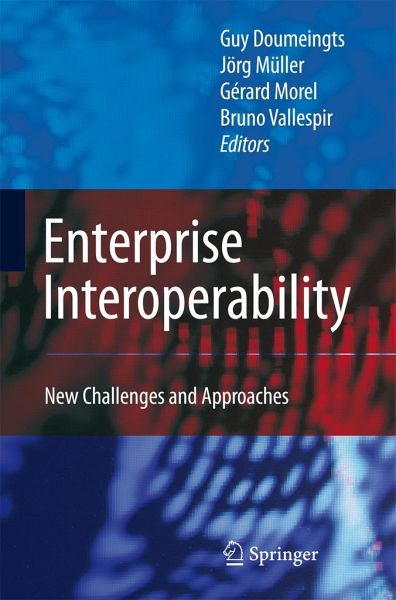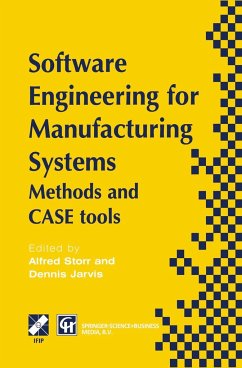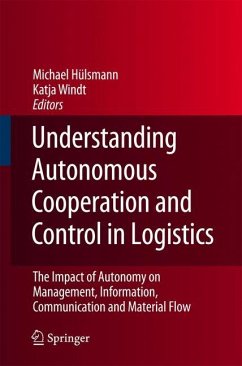
Enterprise Interoperability
New Challenges and Approaches
Herausgegeben: Doumeingts, Guy; Müller, Jörg; Morel, Gérard; Vallespir, Bruno

PAYBACK Punkte
76 °P sammeln!
Interoperability: the ability of a system or a product to work with other systems or products without special effort from the user is a key issue in manufacturing and industrial enterprise generally. It is fundamental to the production of goods and services quickly and at low cost at the same time as maintaining levels of quality and customisation.Composed of over 50 papers, "Enterprise Interoperability" ranges from academic research through case studies to industrial and administrative experience of interoperability. The international nature of the authorship continues to broaden. Many of the...
Interoperability: the ability of a system or a product to work with other systems or products without special effort from the user is a key issue in manufacturing and industrial enterprise generally. It is fundamental to the production of goods and services quickly and at low cost at the same time as maintaining levels of quality and customisation.
Composed of over 50 papers, "Enterprise Interoperability" ranges from academic research through case studies to industrial and administrative experience of interoperability. The international nature of the authorship continues to broaden. Many of the papers have examples and illustrations calculated to deepen understanding and generate new ideas.
A concise reference to the state of the art in software interoperability, "Enterprise Interoperability" will be of great value to engineers and computer scientists working in manufacturing and other process industries and to software engineers and electronic and manufacturing engineers working in the academic environment.
Composed of over 50 papers, "Enterprise Interoperability" ranges from academic research through case studies to industrial and administrative experience of interoperability. The international nature of the authorship continues to broaden. Many of the papers have examples and illustrations calculated to deepen understanding and generate new ideas.
A concise reference to the state of the art in software interoperability, "Enterprise Interoperability" will be of great value to engineers and computer scientists working in manufacturing and other process industries and to software engineers and electronic and manufacturing engineers working in the academic environment.













